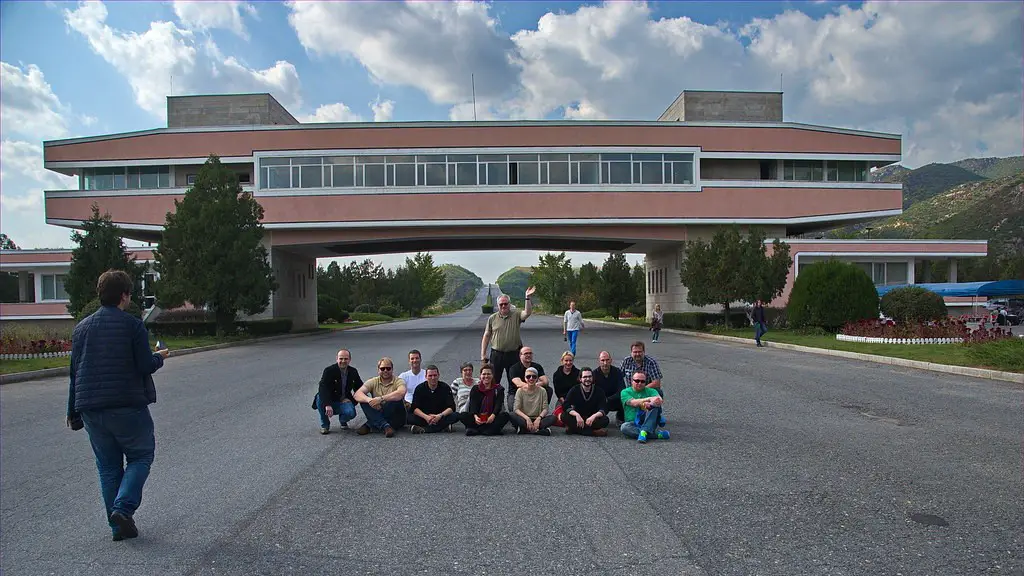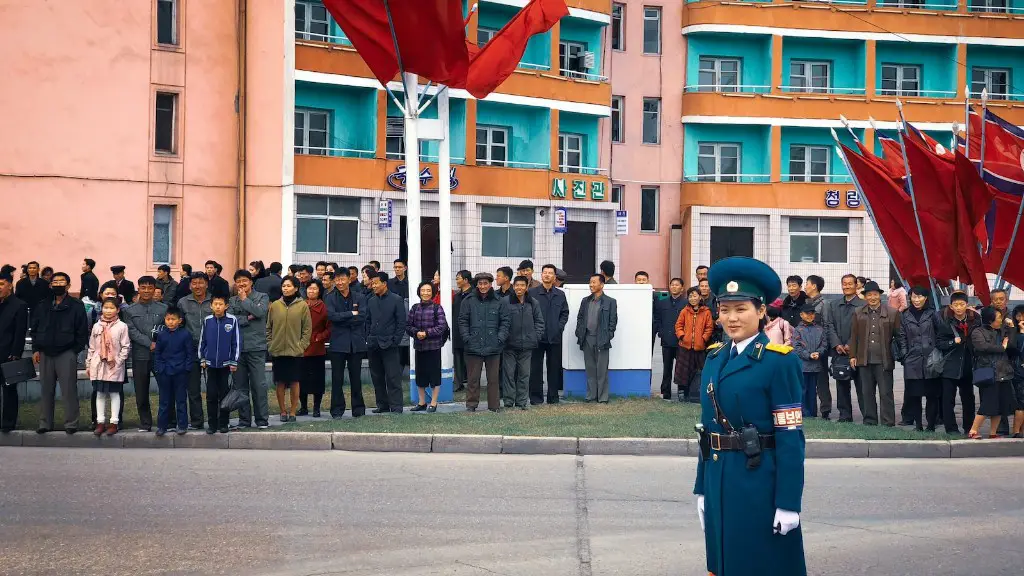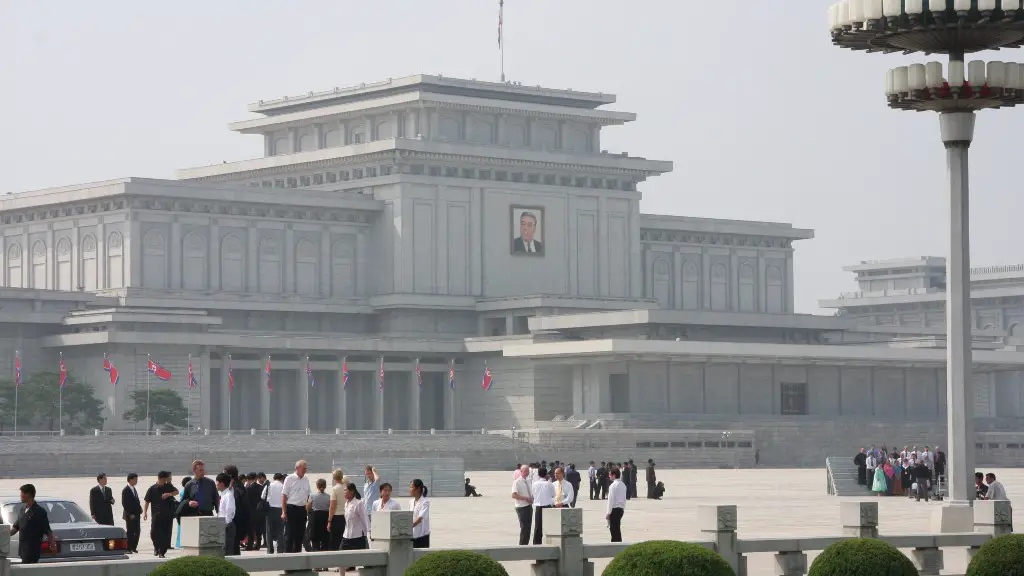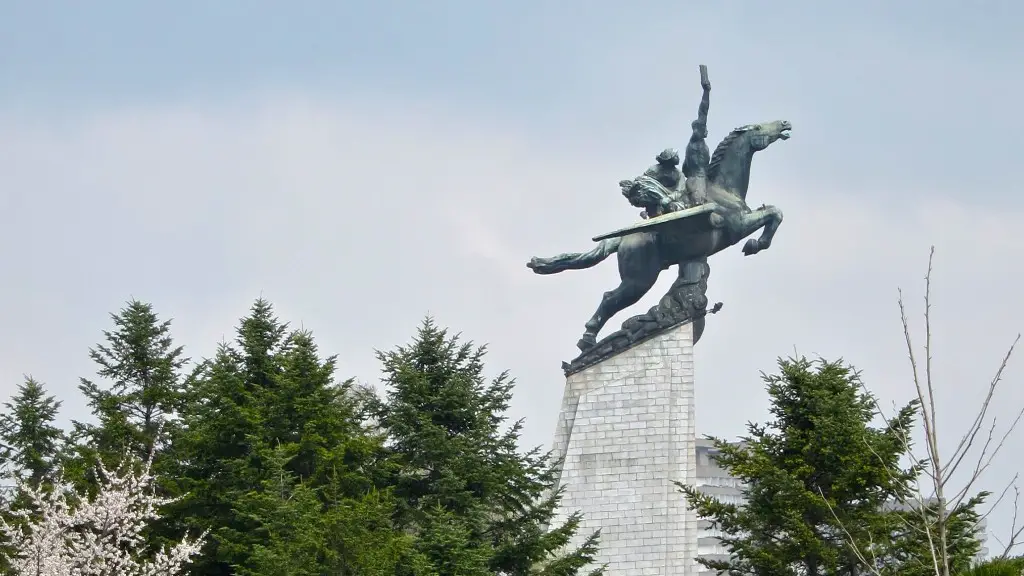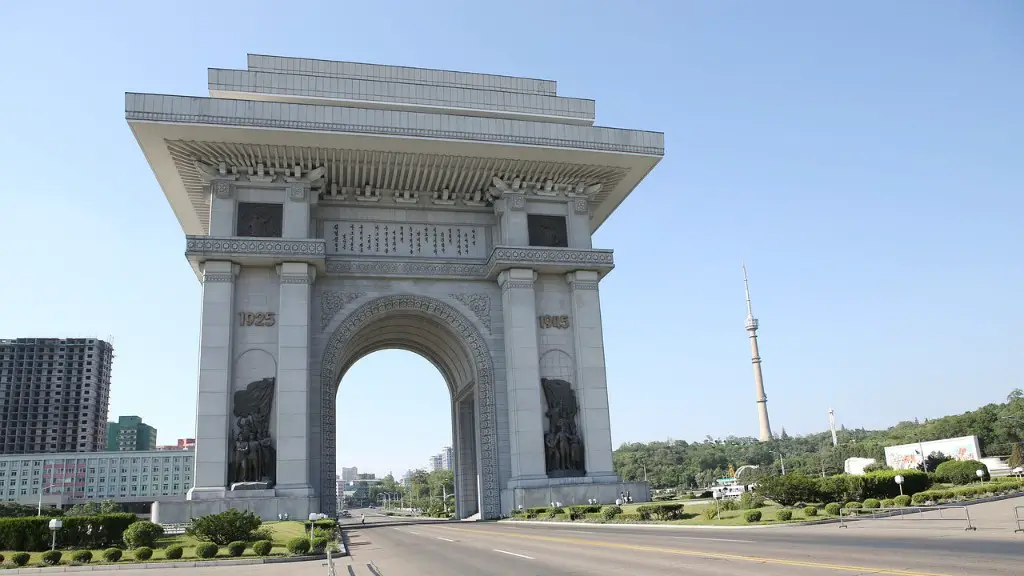Background Information
North Korea’s nuclear program has been a source of international concern since the early 1990s. Evidence suggests that North Korea has been pursuing a clandestine nuclear weapons development program since at least 1993, though its official position is that it has never had such a program. At the heart of the North Korean nuclear issue is the question of where the country obtained the technology and the materials it is believed to possess.
It is widely accepted that North Korea acquired its nuclear technology from abroad. Depending on who you ask, the sources could be different countries such as the former Soviet Union or China, countries or groups connected to Pakistan or Iran, or even some other unnamed sources. It is not clear precisely who or what was responsible for the technology transfer, though considerable evidence exists to suggest it is likely to have been a combination of different sources.
Relevant Data
North Korea’s nuclear weapons development program dates back to the 1960s and 1970s. During this period, North Korea received considerable assistance from the former Soviet Union, including technology and raw materials such as uranium, which is used as fuel for nuclear reactors. During the 1990s, North Korea began to acquire nuclear technology and materials from China, allegedly as part of a barter deal. According to some estimates, North Korea has now acquired enough nuclear material to manufacture between 10 and 15 nuclear weapons.
North Korea is believed to have obtained uranium enrichment technology from Khan Research Laboratories in Pakistan, which is widely known to have connections to a black market in nuclear technology. It is also suspected that North Korea has obtained technology from Iran as part of a clandestine military cooperation agreement. North Korea is also believed to have received assistance from individuals or groups in North America and Europe, though the precise nature and extent of this assistance remains unclear.
Experts Perspectives
According to experts, North Korea’s nuclear program has two main focuses: the first is for military use, and the second is for international prestige. The North Korean government has publicly stated that its nuclear program is aimed at deterring any potential attack from the United States and other nations, and has cited US military actions in Iraq and Afghanistan as examples of why North Korea needs the nuclear weapons.
Experts argue that the North Korean government is also attempting to gain both political and economic leverage by developing nuclear weapons and threatening to use them. It is believed that the North Korean government has used the threat of its nuclear weapons to extort aid and concessions from other countries, such as the United States.
Despite international efforts to stop North Korea’s nuclear program, there has been little progress in curtailing the country’s nuclear ambitions. The United States and other countries have imposed sanctions on North Korea and attempted to negotiate a disarmament agreement, but so far these efforts have not been successful.
Insights and Analysis
The complexity of North Korea’s acquisition of nuclear technology is a major obstacle to the international community’s efforts to halt its nuclear program. North Korea’s nuclear program appears to have benefited significantly from outside assistance, and it is likely that the country’s nuclear weapons were acquired through a combination of technology transfer, clandestine deals, and political extortion.
The failure to deter North Korea from developing nuclear weapons highlights the need for a new approach to the problem. It is clear that the current strategy of sanctions and negotiations has not been effective in stopping North Korea’s nuclear weapons program, and a new and creative approach is needed if the international community is to successfully halt North Korea’s nuclear ambitions.
Technological Transfer
The transfer of nuclear technology to North Korea is a major concern for international security. Technology transfer, whether conscious or inadvertent, is a major component of nuclear weapon proliferation and a serious concern for the international community.
Although it is difficult to ascertain the exact source of North Korea’s nuclear technology, the evidence points to a variety of potential sources. Technology from the former Soviet Union and China are frequently cited as possible sources, and it is likely that North Korea has received assistance from individuals, groups, and countries outside of the Soviet Union and China.
The international community needs to take proactive measures to prevent unauthorized technology transfer to North Korea and increase the transparency of transfers from potential suppliers. Without this, it is impossible to effectively combat the proliferation of nuclear weapons.
Reversing the Technology
A major challenge faced by the international community when dealing with North Korea’s nuclear program is that once a nuclear weapon is acquired, it is very difficult to reverse the technology. North Korea has already achieved a considerable level of nuclear capability, and any attempt to contain it or reduce its capability is likely to be costly and difficult.
International efforts to contain or reverse North Korea’s nuclear capabilities have been largely unsuccessful, and it is unclear what action the international community is willing to take in order to stop the country’s nuclear ambitions. What is certain, though, is that any plan to contain or reduce North Korea’s nuclear weapons will require a combination of diplomatic, economic, and military efforts.
North Korean Regime
The North Korean regime has been able to acquire nuclear technology in part due to its secretive and authoritarian nature. The leadership in Pyongyang has been able to carry out its nuclear weapons program without the knowledge of the outside world, and has been able to evade international pressure and scrutiny. This has enabled North Korea to make significant progress in acquiring the necessary technology and materials, and in the development of a nuclear weapon.
The lack of transparency in the North Korean regime is a major challenge for the international community. Without greater transparency and accountability, there is little chance of the international community being able to effectively contain or reduce North Korea’s nuclear ambitions.
International Repercussions
The success of North Korea’s nuclear weapons program has serious repercussions for international security. Not only does North Korea now possess the capability to launch a nuclear weapon, but its success in acquiring this technology has drastically changed the balance of power in Northeast Asia and the world.
The United States and other countries are now faced with the challenge of containing North Korea’s nuclear capabilities and preventing other countries from emulating its success in acquiring nuclear weapons. The United Nations Security Council has imposed sanctions on North Korea, and the international community is attempting to negotiate a denuclearization agreement with the country, but these efforts have so far been unsuccessful.
The Future of the Program
Although the international community has been largely unsuccessful in curtailing North Korea’s nuclear program, there is some hope that the situation may be resolved eventually. The United States and other countries have been engaged in negotiations with North Korea, and in recent years, the country has shown a willingness to engage in talks with other nations and make some concessions.
If the negotiations are successful, and North Korea is able to abandon its nuclear weapons program, it could be a major step towards greater international peace and security. North Korea’s acquisition of nuclear technology is a major cause for international concern, and resolving this issue could go a long way towards improving the stability of the region and the international situation.
